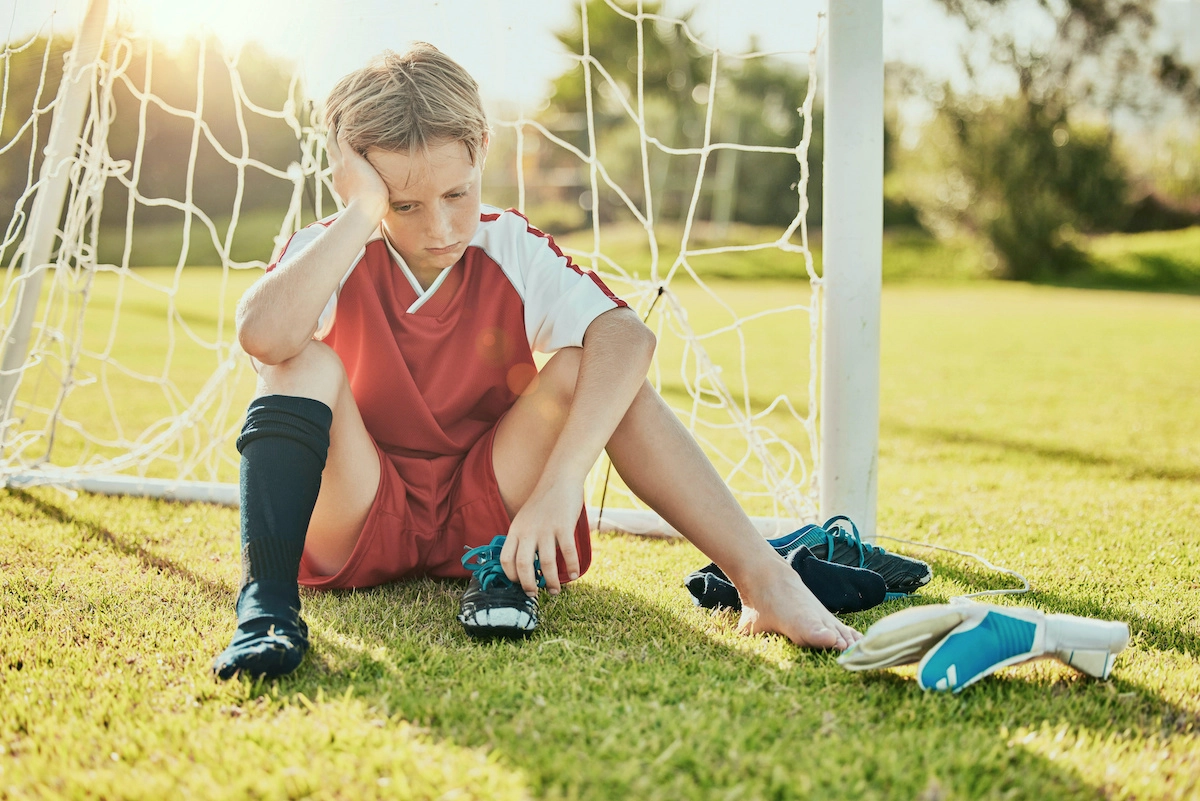
Tips to ensure student athletes have a positive experience on and off the field
Participating in sports can provide children and teens with fitness, fun, confidence, companionship, new friendships, and great memories. But mental health problems can creep in if parents and coaches don’t put in place guidelines to make sure the experience is positive for student athletes.
“Sports takes focus, discipline, determination, self-control, self-motivation, mental and physical toughness. It teaches us so many valuable lessons about life that we cannot get anywhere else,” explained Bradley Adams, Beaufort High School athletic director. “Though it teaches us life lessons, it is not all that life has to offer. Sporting competitions are temporary. They will all end at some point. What matters about the game is the lessons you learn from it,” said Coach Adams.
Playing Sports: What are the benefits for children and teens
Student athletes are more likely than their nonathlete peers to engage in health-promoting behaviors such as daily exercise, sleeping at least seven hours a night, healthy eating and drinking less soda.
High-school student athletes also appear to be more competent in school and have higher expectations to continue education beyond high school compared with nonathletes.
Student athletes also report higher perceived self-esteem and are more confident in their ability to achieve specific goals compared with their nonathlete peers.
Negative effects of playing sports for student athletes
As fun and beneficial as sports can be, there are some potential pitfalls. For young people with still-developing self-image and self-regulation skills, the strong emotions and internal and external pressures associated with playing sports can be difficult to cope with.
Increased physical activity often means increased risk of injury. This is particularly true for youth who specialize in a single sport before reaching puberty and engage in year-round training with insufficient periods of rest.
Young athletes can experience a variety of mental health problems tied to playing a sport, including:
Associating Winning with Self-Worth: Young athletes may take it particularly hard when personal setbacks occur. They may have an unrealistic standard for themselves and start to equate their athletic performance with self-worth.
Unhealthy Perfectionism in Sports: Some children have a strong sense of perfectionism, and it does not always benefit them in sports. “It is important to avoid rigid perfectionism,” said Valerie Valle, a doctor of Psychology and sports psychologist in the Johns Hopkins All Children’s Hospital Institute for Brain Protection Sciences.
An athlete striving for unhealthy perfection may:
- Avoid taking risks and resist change for fear of failure.
- Be overly sensitive to criticism.
- Get frustrated over the smallest mistakes.
- Procrastinate or give up on difficult tasks.
- Downplay accomplishments or attribute them to luck instead of skill.
Student Athlete Stress and Anxiety: Young athletes can get stressed when they don’t make the team, make a mistake, don’t get the play time they want, or fall short of a metric they are working to achieve. Balancing sports participation with academics, hobbies, friends, family time and other social activities can also contribute to stress.
Even good stress can take a toll. A child or teen who is very excited about a big game can experience the effects of stress, even when it is in a positive context. Symptoms of being stressed out can include:
- Feeling on edge or overwhelmed or “checked out” and apathetic.
- Panic attacks.
- Agitation.
- Avoidance (skipping practice, for example).
- Voicing reluctance or dread about going to practice or competitions.
- Difficulty sleeping or sleeping more than usual.
- Stomach problems such as upset stomach, constipation or diarrhea.
- Headaches.
- Risk-taking behaviors such as problematic substance use.
Depression in Young Athletes: Depression can affect anyone, even high-performing young athletes. There are many factors at play, including genetics and personality, as well as the pressures of youth sports, especially for elite athletes.
Depression in children can look like boredom, distractedness or low energy. A few days of the blahs or sadness is nothing to worry about. But if your child loses interest in their sport or other things they normally enjoy, stay alert. These signs, along with others such as a weekslong sad mood, change in appetite or sleep patterns and other symptoms warrant a trip to the doctor to rule out depression.
Burnout in Youth Sports: Parents can be very enthusiastic when their child shows an interest in sports ― especially if they demonstrate unusual talent. After concentrating on one sport for a while, young athletes may become tired of it, both emotionally and physically. Emotional and physical exhaustion, reduced sense of accomplishment and a feeling of declining value in the sport are all characteristics of burnout. Burnout can affect teens in many ways including:
- Going to practice without the usual enthusiasm.
- Choosing to spend more time away from the sport.
- Feeling overly defeated and discouraged after losses or setbacks.
- Appearing fatigued or disinterested.
- Expressing desire to quit the sport.
What Parents and Coaches Can Do: Negative effects of youth sport participation like injury, performance anxiety and burnout do not discriminate based on the type of sport. Athletes involved in individual and team sports can be affected. But there are things athletes, parents, coaches and mentors can do to help build resilience and keep fun in sports.
Open a Dialogue and Listen: If you suspect something is taking a toll on your child’s mental health, acknowledge it. Ask open-ended questions such as “I’ve noticed that …..” about your observations. Listen to understand.
Evaluate the Extent of the Problem: One of the goals is to determine whether the athlete does not want to face a specific one-time situation or if it is a case of an ongoing stress, burnout, anxiety, or depression.
Set Meaningful and Achievable Goals: Parents, guardians and coaches can help young athletes build resilience by establishing an emotional foundation of “why” and help young athletes understand that events related to competition in most cases do not have permanent life-altering consequences.
Make Time for Breaks: Parents can work with coaches to give kids appropriate breaks from training. Rest is necessary.
Keep Sports Fun: It is important to keep sports fun. During childhood, talents emerge, and the ones that are genuinely enjoyable can become lifelong passions.
Together, adults can help children and teens enjoy sports for what they truly are – a learning experience, pastime and hobby. “The game does not last forever but the lessons you take from it will carry you throughout your life,” said Coach Adams.
# # #
Source: https://www.hopkinsmedicine.org/health/wellness-and-prevention/student-athlete-mental-health









